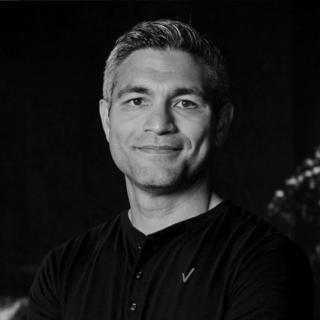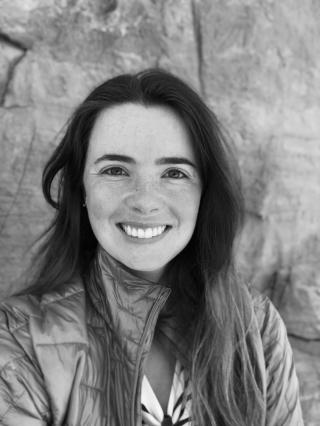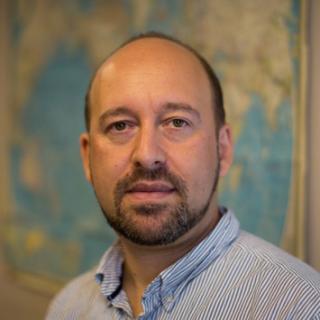Judging Criteria
Details on what our panel of judges will be looking for.

Criteria
After an initial screening by MIT Solve, Verizon, and community reviewers, the judges will score the screened solutions based on the following criteria:
- Alignment
-
The solution uses technology to address at least one of the key dimensions of the Prize or the overall Prize question.
- Potential for Impact
-
The planned solution has the potential to drive community resilience and impact vulnerable communities facing weather-related disasters in the United States.
- Feasibility
-
The team has a realistic and practical plan for implementing the solution, and it is feasible in the given context.
- Innovative Approach
-
The solution includes a new technology, a new application of technology, a new business model, or a new process for solving the Prize.
- Community-Centered Design
-
The solution team demonstrates proximity to the vulnerable communities served by the solutions, and this proximity is embodied throughout the design, implementation and internal operations of the solution. For this Prize, vulnerable communities are defined as households that fall at or below their state’s median household income level.
- Scalability
-
The solution has a plan for financial viability and the potential to be scaled to affect the lives of more people.
- Partnership potential
-
The applicant clearly explains how the solution would benefit from integrating further with Verizon’s existing infrastructure and programs.
- Technical Feasibility
-
The applicant has provided convincing evidence that the technology has been built and functions as they claim it does. Note: only solutions selected as finalists will be assessed on this criterion. A solution would score lower on Technical Feasibility if the technology underlying the solution would not be possible to create. A solution would score higher on Technical Feasibility if the applicant has provided convincing evidence that the technology underlying the solution has been successfully built and tested.
Judging Panel
The judging panel for this Prize is composed of leaders and experts with experience in weather-related disasters, resilience, and technology in the United States.
-2xs.jpg)
Ali Arabnya, Director & Practice Lead, Quanta Technology
Ali Arabnya is an experienced leader in power and energy infrastructure development and strategic management. He has extensively advised investor-owned utilities, energy developers, investment banks, regulatory agencies, international organizations, and Fortune 500 energy companies. His expertise include strategic growth, risk & resilience, and sustainability.
Ali is the author of two books on the economics and management of power & energy infrastructure. He holds a Ph.D. in Industrial Engineering (Energy Systems) from the University of Houston and is currently pursuing an Executive MBA at MIT.
Outside of work, Ali is an avid traveler, having explored all 50 U.S. states and traveled extensively around the world.
-(1)-2xs.jpeg)
Brandon Wong, CEO, Hyfi
Brandon Wong is the CEO and co-founder of Hyfi with an expertise in sensing, data and water. He holds dual degrees in Civil Engineering and Computer Science from the University of Michigan. Dr. Wong is also the co-founder of Open-Storm.org and led Hyfi to win the inaugural Verizon Resilience Prize in 2022 in recognition of Hyfi’s contribution to leading-edge technologies for disaster resilience.
-2xs.jpeg)
Khamis Abulgubein, Associate Director, IoT Product Technology, Verizon Business
Khamis leads product development for Verizon's ThingSpace IoT platform. The platform enables network intelligence services on ThingSpace for IoT & FWA include Geo-Location, Network Performance API's, AI, Device Management, Slicing, Security and Analytics. It manages millions of devices and used by thousands of businesses.
Khamis has over 20 years in the telecom industry beginning at Nortel in wireless technical sales and includes 9 years at Alcatel-Lucent/Nokia in IoT product marketing and product management.
Khamis has a Bachelors in Electrical Engineering from Purdue University and a Masters in Business Administration from the University of Illinois. He's based in the Dallas, Texas area.
-2xs.jpeg)
Patricia McIlreavy, President & CEO, Center for Disaster Philanthropy
Patty leads the Center for Disaster Philanthropy (CDP), a nonprofit organization committed to helping donors maximize their impact through strategic, equity-centered disaster giving.
With more than 30 years of experience in humanitarian relief and post-conflict development settings, including 17 years living and working overseas, primarily in Africa and the Middle East, she brings a rare blend of operational, policy and strategic expertise to the field of disaster philanthropy.
Throughout her career, Patty has worked to improve the effectiveness and impact of the aid sector. She has a proven track record of leadership across nonprofits, philanthropy, government agencies, and the United Nations, both domestically and globally. Prior to joining CDP, she served as vice president of the humanitarian policy and practice team at InterAction.
Driven by a passion for creating lasting, community-led solutions for populations affected by disasters and crises, Patty is a sought-after speaker, frequent media commentator, and contributor to leading industry publications.
-2xs.jpg)
Raghuveer Vinukollu, Climate Resilience / Reinsurance Professional, Munich Re US
Raghuveer Vinukollu is the Head of Climate Insights and Advisory at Munich Reinsurance America, Inc. based in Princeton, New Jersey. His work*** focuses on developing sustainable insurance solutions and spearheading initiatives that protect property owners and communities against unforeseen events and also ensuring the preservation and enhancement of the natural environment.
Raghuveer has a PhD in land surface hydrology from Princeton University. He has often expressed his thoughts on the impact of flooding and the changing risk landscape on personal property, local businesses and communities. He is a passionate advocate for climate adaptation and resiliency with emphasis on the role of insurance and public private partnerships in building resilient communities. Raghuveer’s expertise in Climate Resilience is reflected in the recent studies titled “Re | imagining resilience in a post pandemic world” and “Nature’s remedy: Improving flood resilience through community insurance and nature-based mitigation”, in which he was the main contributor.
Raghuveer is also one of the members of the State of California Climate Insurance Working Group, a Research Affiliate at the Lawrence Berkeley National Lab, a board member of Helvetas USA (non-profit), and an Editorial Board member of the Nature Journal on Climate Action.
*** views and opinions expressed are Raghuveer's own.
-2xs.jpeg)
Reese May, Chief Strategy Officer, SBP
Reese is a two-time combat veteran, US Marine who has been serving communities for nearly ever since his military service concluded. Reese leads SBP’s strategy and innovation, directing high impact impactful local and national programs and leading SBP's government affairs across the United States. Reese is a sought-after resilience and recovery expert with more than 14 years of experience in recoveries across country. A relentless innovator and social entrepreneur, Reese has been the creative force behind SBP’s Recovery Acceleration Fund, Resilience Fellows Program, and the expansion of training and advisory services SBP provides to state and local government leaders. He is a FEMA Vanguard Executive and a member of the Bipartisan Policy Center’s Task Force on Reforming Disaster Response and Recovery. Reese has helped lead SBP since 2011.

Marissa McInnis, Senior Director, Global Sustainability, Verizon
Marissa is responsible for overseeing the continued evolution and implementation of Verizon’s Sustainability Strategy as well as our enterprise wide relationships across our sustainability portfolio.
Prior to joining Verizon, Marissa was with the Department of Defense in Washington DC, leading Climate Policy and Interagency engagement. She served as the climate policy advisor to the Assistant Secretary of Defense for Energy, Installations and Environment.
She has held a number of progressive roles within the White House and Pentagon including Director for Climate Adaptation and Resilience, Climate Program Director for the Secretary of Defense and the Secretary of the Navy.
From 2006-2014, Marissa served in various leadership roles at the U.S. Environmental Protection Agency including the Office of the CFO and the Tribal Affairs Office.

Noel Anderson, Chief Sustainability Officer, American Red Cross
Noel Anderson is Chief Sustainability Officer at the American Red Cross, a nonprofit humanitarian organisation that provides disaster relief, disaster preparedness education and emergency assistance.

Paul Robinson, Executive Director, RISE Resilience Innovation
Paul Robinson Ph.D., is founder and Executive Director of RISE, a Hampton Roads, Virginia based, nonprofit dedicated to accelerating innovation and business growth around solutions to coastal resilience challenges. Since 2018, RISE has deployed over $8 million in financial support and services to more than 40 businesses developing new, scalable solutions that help coastal, rural and riverine communities adapt to climate change.

Cynthia Joachimpillai, Associate Director, Verizon Innovation Lab
Cynthia Joachimpillai is a professional with a Bachelor's Degree in Child Advocacy and Family Policy with a Minor in Biology from the University of New Hampshire. She has a wealth of experience in various roles at Verizon, including Manager at the Verizon Innovation Center and the 5G London Lab. Prior to these roles, she held positions such as Project Manager in Cyber Defense, Technology Strategist at the Waltham Innovation Center, and Research Intern at the Head Start State Collaborative Office.

Dr. Nathaniel Hanson, Technical Research Scientist, MIT Lincoln Laboratory
Dr. Nathaniel Hanson is a member of the Technical Staff in the Human Resilience Technology Group at MIT Lincoln Laboratory. He holds a B.S. in Computer Engineering from the University of Notre Dame, an M.S. in Computer Science from Boston University, and a Ph.D. in Computer Engineering from Northeastern University’s Institute for Experiential Robotics.
At MIT Lincoln Laboratory, Hanson leads a research portfolio at the intersection of robotics and disaster response. His current work explores sensor-algorithm co-design for material perception, soft robotic intelligence, and remote sensing for ecosystem monitoring. He regularly serves as an advisor to government agencies on the integration of autonomous systems and remote sensing into emergency response efforts. He collaborates closely with MIT on AI curriculum development and mentors military personnel through the Department of the Air Force-MIT AI Accelerator. In addition to his research, Hanson is active in organizing conferences and workshops through the IEEE Robotics & Automation Society to advance robotic technologies in humanitarian assistance and disaster relief efforts.

Dr Christian Guirnalda, Head of Tech Venturing/Open Innovation, Verizon
![[Headshot]-Terry-Baker-CEO,-SAF.jpeg](https://d3t35pgnsskh52.cloudfront.net/media/58011/conversions/[Headshot]-Terry-Baker-CEO,-SAF-2xs.jpeg)
Terry Baker, CEO, Society of American Foresters
Terry Baker is the CEO of the Society of American Foresters (SAF). He oversees all of SAF’s programs and collaborates with his Board of Directors to establish a strategic vision committed to the scientific sustainable management of America’s forests.
Prior to his selection as SAF CEO in September 2018, Baker served in various roles within the USDA Forest Service. His almost 20-year federal career started in his home state of Florida on the Apalachicola National Forest.
Baker earned a Master’s degree in Forest Management and Policy from Yale University in 2007, a Bachelor’s degree in Forest Resources and Conservation at the University of Florida in 2004, and a Bachelor’s degree in Agricultural Sciences from Florida A&M University.

Kate Covert, Director, US Long-Term Disaster Recovery at Habitat for Humanity International
Kate Covert is the Director of U.S. Long-Term Disaster Recovery at Habitat for Humanity International. With nearly eight years of experience in disaster recovery, Kate is responsible for shaping the programmatic design and strategic direction of Habitat’s disaster recovery and resilience work in the United States. She and her team are dedicated to supporting Habitat affiliates across the country to strengthen local capacity in communities rebuilding after disasters. She brings a strong focus on equity, sustainability, and partnership to ensure that recovery efforts are community-led and long-lasting.
Driven by a deep passion for serving disaster survivors and the communities most impacted by crises, Kate is committed to helping families not just rebuild homes, but restore stability and hope. Her work reflects a belief that safe, resilient housing is a foundation for recovery and future resilience.

Gavin Schmidt, Director, NASA Goddard Institute for Space Studies
Criteria Scoring Details
How might your application be scored higher or lower? Learn more below.

